The enormous gamma-ray burst, called the Brightest Of All Time (or BOAT), may be powered by its strange jet structure, scientists say.
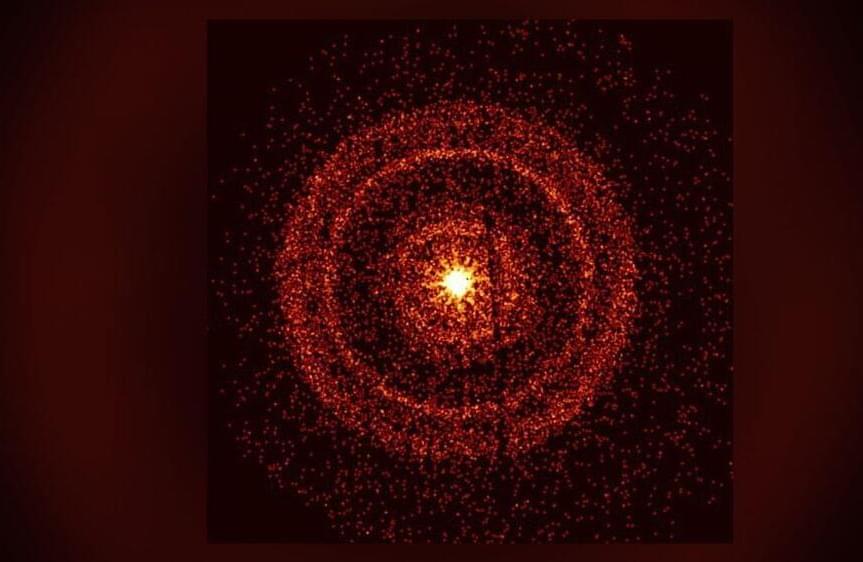

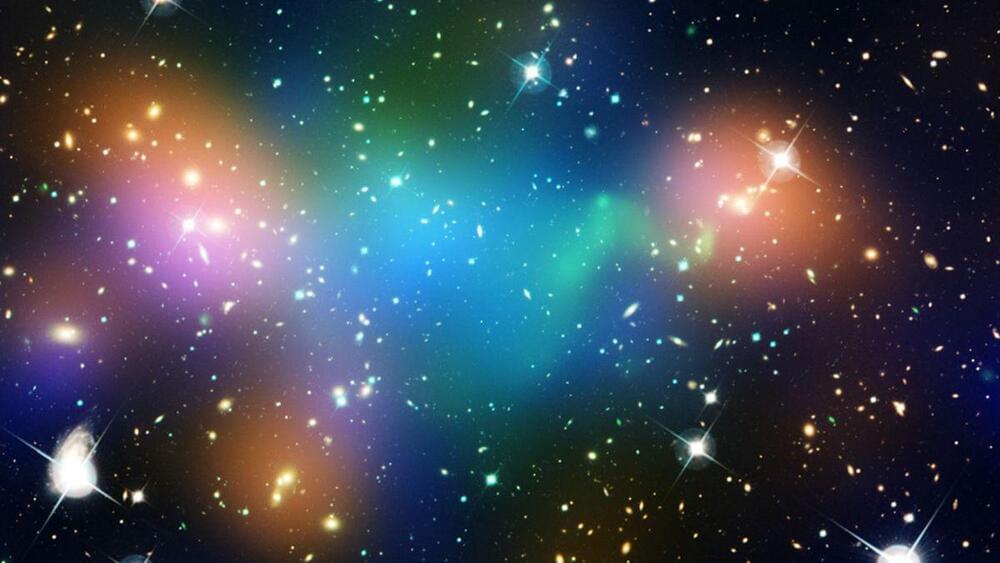
Dark matter, the invisible material that makes up the vast majority of the universe’s mass, may collect itself to form atoms, a new simulation shows.
Those “dark atoms” might radically alter the evolution of galaxies and the formation of stars, giving astronomers a new opportunity to understand this mysterious substance.
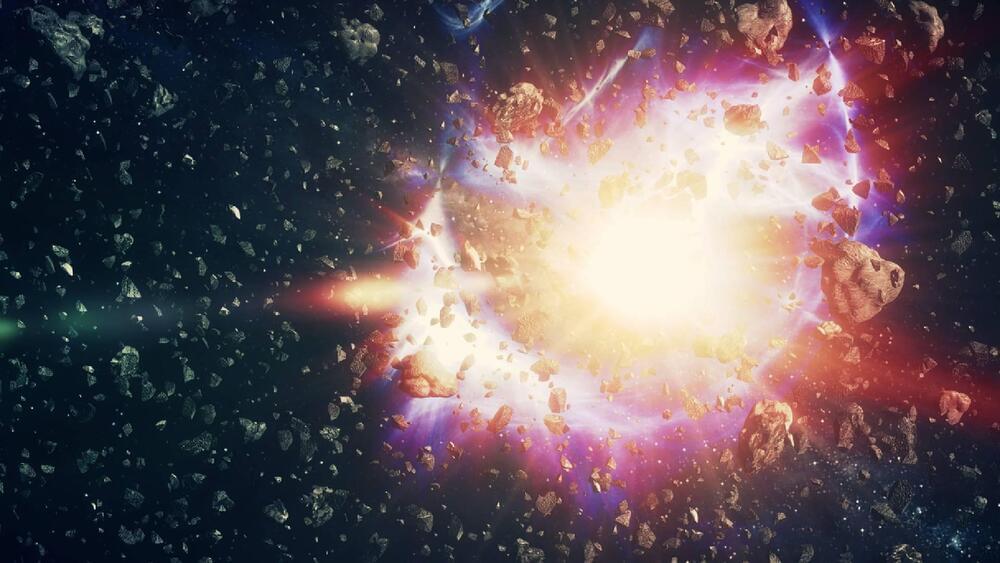
“The Universe Came From a Black Hole” String Theory Founder Reveals James Webb Telescope’s New Image. Deep within dense star clusters, something extraordinary dwells: Stars. But these, are no ordinary stars, but colossal celestial beings, known as supermassive stars. And now, their existence has been unveiled by the piercing gaze of the James Webb Space Telescope.
According to the standard model of cosmology, after the universe came out of the big bang, it took between 500 million to 1 billion years for the first stars to form. That however, is changing.
We are not just finding single stars, but clusters of them in the early universe and that, has the whole scientific community stunned.
#space #jameswebbspacetelescope #nasa.
0:00 Stars in Globular Clusters.
2:24 The Abundance Anomalies.
3:55 Most Ancient and Distant Galaxies.
Join Lab360 to get access to some amazing perks:

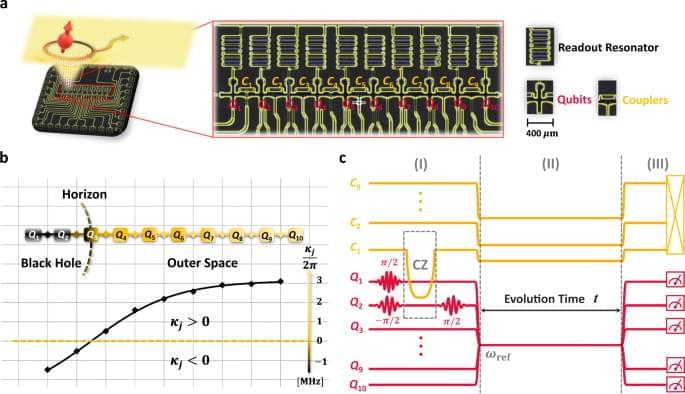
Recently, the theory of Hawking radiation of a black hole has been tested in several analogue platforms. Shi et al. report a fermionic-lattice model realization of an analogue black hole using a chain of superconducting transmon qubits with tuneable couplers and show the stimulated Hawking radiation.
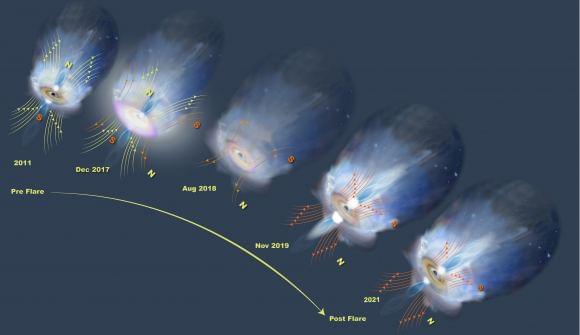
Black holes, cosmic power stations, fuel the luminosity of quasars and active galactic nuclei (AGNs) through their intricate interaction of matter, gravity, and magnetic forces. Despite black holes themselves not possessing a magnetic field, the surrounding dense plasma in the accretion disc does. As this plasma orbits the black hole, its charged particles generate an electric current and consequently a magnetic field.
This magnetic field, assumed to be stable due to the unvarying plasma flow, caused scientists to scratch their heads when they found evidence of its directional change. Such a phenomenon, known as a magnetic reversal, is akin to an imaginary pole of a magnet switching from north to south or vice versa. While not uncommon in stars, and even witnessed in the Sun’s 11-year sunspot cycle or Earth’s infrequent magnetic shifts, such an event was thought improbable for supermassive black holes.
In 2018, a computer-aided sky survey detected a startling transformation in a galaxy 239 million light-years away named 1ES 1927+654, which had suddenly become a hundredfold brighter. Swift Observatory soon reported x-ray and ultraviolet light emissions from this region. Initial speculations suggested a tidal disruption event caused by a star venturing too close to the galaxy’s central supermassive black hole, disrupting gas flow into the accretion disc, as the reason for this unusual luminosity.
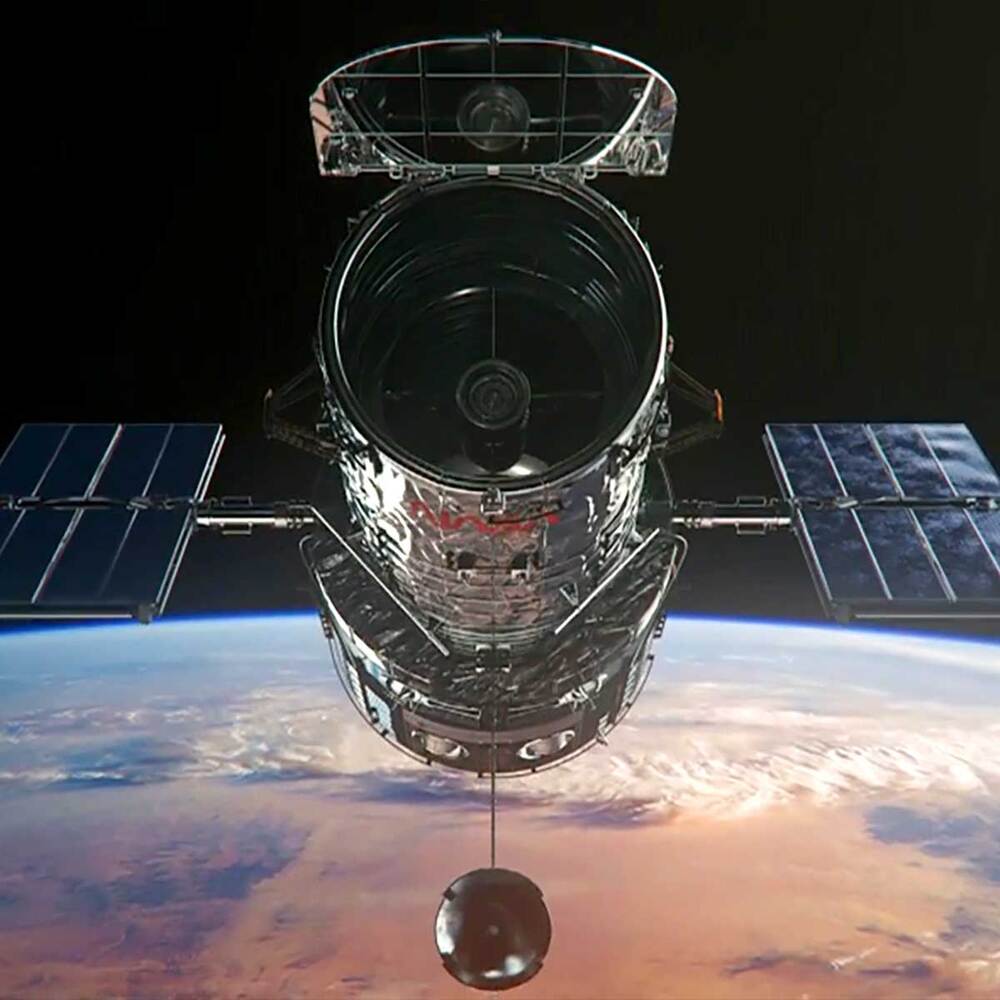
This image of galaxy cluster MACS J1206.2–0847 (or MACS 1,206 for short) is part of a broad survey with NASA’s Hubble Space Telescope.
The distorted shapes in the cluster are distant galaxies from which the light is bent by the gravitational pull of an invisible material called dark matter within the cluster of galaxies. This cluster is an early target in a survey that will allow astronomers to construct the most detailed dark matter maps of more galaxy clusters than ever before.
These maps are being used to test previous, but surprising, results that suggest that dark matter is more densely packed inside clusters than some models predict. This might mean that galaxy cluster assembly began earlier than commonly thought.
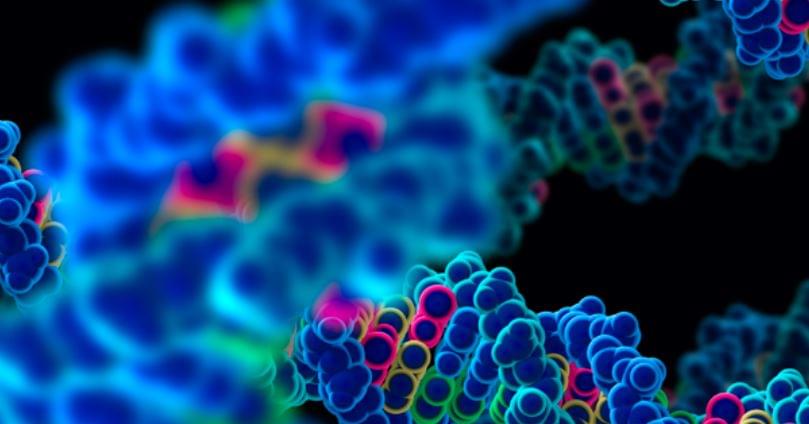
Researchers discovered only relatively recently that black hole jets emit X-rays, and how the jets accelerate particles to this high-energy state is still a mystery. Surprising new findings in Nature Astronomy appear to rule out one leading theory, opening the door to reimagining how particle acceleration works in the jets—and possibly also elsewhere in the universe.
One leading model of how jets generate X-rays expects the jets’ X-ray emissions to remain stable over long time scales (millions of years). However, the new paper found that the X-ray emissions of a statistically significant number of jets varied over just a few years.
“One of the reasons we’re excited about the variability is that there are two main models for how X-rays are produced in these jets, and they’re completely different,” explains lead author Eileen Meyer, an astronomer at University of Maryland, Baltimore County. “One model invokes very low-energy electrons and one has very high-energy electrons. And one of those models is completely incompatible with any kind of variability.”
The Gemini North telescope, one half of the International Gemini Observatory operated by NSF’s NOIRLab, has returned from a seven-month hiatus literally with a bang, as it has captured the spectacular aftermath of a supernova, a massive star that exploded in the large, face-on, spiral Pinwheel Galaxy (Messier 101). The supernova, named SN 2023ixf (lower left), was discovered on May 19 by amateur astronomer Koichi Itagaki.
Since its discovery, observers around the globe have pointed their telescopes toward Messier 101 to get a look at the burst of light. Over the coming months, Gemini North will allow astronomers to study how the light from the supernova fades and how its spectrum evolves over time, helping astronomers better understand the physics of such explosions.
The appearance of SN 2023ixf is rather serendipitous for the Gemini North telescope, which is back to observing with its primary mirror repaired and recoated after suffering damage in late 2022. The damage was limited to a small region outside of the light-collecting area of the mirror. Nevertheless, the repairs were carefully planned and completed to ensure that Gemini North could safely return to normal operations. This process lasted approximately seven months and in May 2023 the mirror was recoated and reinstalled, and the control systems were powered up and tested.